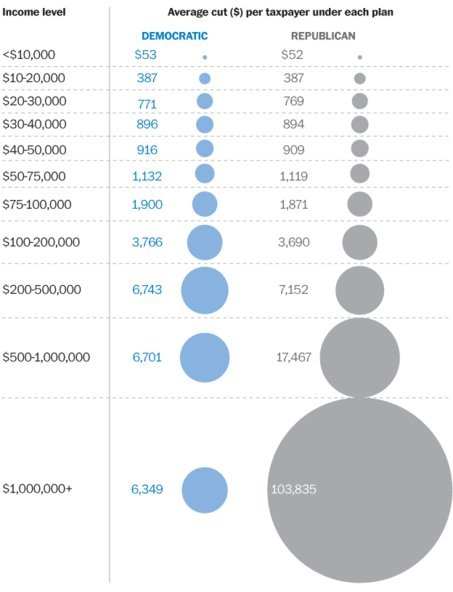
Your sword's grown old and rusty, burnt beneath the rising sun.
It's locked up like a trophy, forgetting all the things it's done.
And though it's been a long time, you're right back where you started from.
I see it in your eyes, that now you're giving up the gun.
-- Vampire Weekend, 2010
The first thing you notice about the grand bargain that appears to have been reached by the White House on extending the Bush-era tax cuts in their current form is that, in policy terms, the deal settles nothing. Yes, the extension of unemployment benefits for thirteen months provides some measure of relief to the nation's unemployed, in that we won't be having debates in three months on whether or not they should receive a pittance to maybe pay their rent and buy some food. But the matter will be re-litigated, all the same, just in time for the commencement of the 2012 presidential primaries. And the tax cut extensions on the richest Americans? That will be back as a campaign issue, just as the next presidential election approaches its climax.
This essentially sets up a rerun of the most depressing televised spectacle of 2010: the Democrats' election-year punt on principle. Back in October, when the Democrats had a chance to do something about the tax cuts, they opted out. At the time, a "senior Democratic aide" said the decision was brilliant, because the Democrats has "a winning message now" so "why muddy it up with a failed vote?" See? It's a "winning message!" It just hasn't yet started to produce any "wins."
On the other hand, the Republicans' election year argument was that the overall indecision on what was going to happen to tax cuts for millionaires created "uncertainty in the economy." Now that this deal has been reached, you'll hear them describe it as a "first step" that helps to "resolve the uncertainty." Naturally, by the time we get to October of 2012, we'll hear all about the return of that uncertainty -- only this time, they know that any White House bluff on continuing to extend the tax cuts on the wealthy can be easily thwarted.
But kicking the can down the road is only the tip of the iceberg, as far as the problems knit up in the compromise are concerned. The larger problem is that the White House has essentially conceded some important arguments to its opponents. In the first place, the nation's struggling, out-of-work middle class is, in this compromise, no longer a cause to be defended. Instead, they are a hostage in negotiations over just how much wealth should be showered on the people who are already doing great in this economic downturn.
But by far, the most significant concession is over the argument, "Where do jobs come from?" The sensible justification for extending unemployment benefits -- beyond keeping Americans alive at a time where there is one job opening for every five job-seekers -- is that they spend that money, and that in turns stimulates demand for goods and services. The countering argument -- the one that's won -- is that only the wealthy create jobs from the top down. And while they're already super-wealthy, they're not wealthy enough yet to start actualizing whatever magical, economy-saving ideas they have in their teeming brains! But if you give them some more money, they'll finally be able to sufficiently stimulate cognition and put their amazing ideas in place and everyone will have jobs again.
Of course, the Democrats were always going to cut taxes on the wealthy! It's just that in the eyes of the plutocracy, they weren't getting the best possible deal out of the wealth redistribution:

All those bailouts and handouts that went to Wall Street bonuses and funding for more financial sector lobbying for more preferential treatment from the government are not reflected in the totals above, by the way!
So, remember when Rand Paul opined that there was no such thing as rich and poor, or income inequity, and that everyone was just interconnected in the world without class distinction, and you said, "My, my, Rand Paul, he is a crazy person?" Well, the White House has just accepted that argument as reality. But that's not all! I'm quite sure that President Barack Obama is aware that his re-election hopes are primarily tied to the performance of the economy: if it improves, he's in good shape; if it doesn't, then he's a goner. So this isn't just the White House accepting the GOP argument -- this is the White House hoping that the GOP turns out to be right. In other words, complete surrender.
[Would you like to follow me on Twitter? Because why not? Also, please send tips to tv@huffingtonpost.com -- learn more about our media monitoring project here.]
